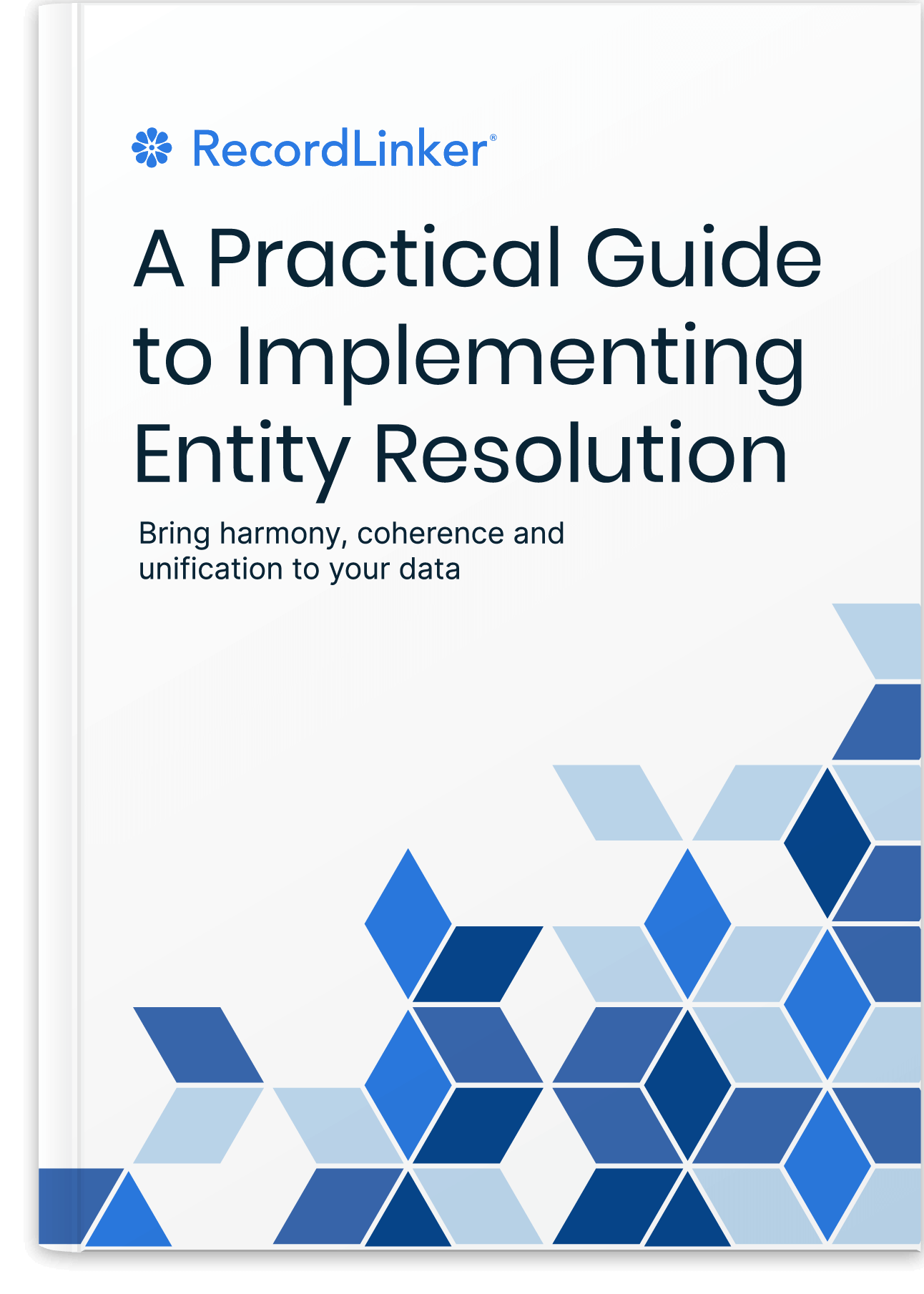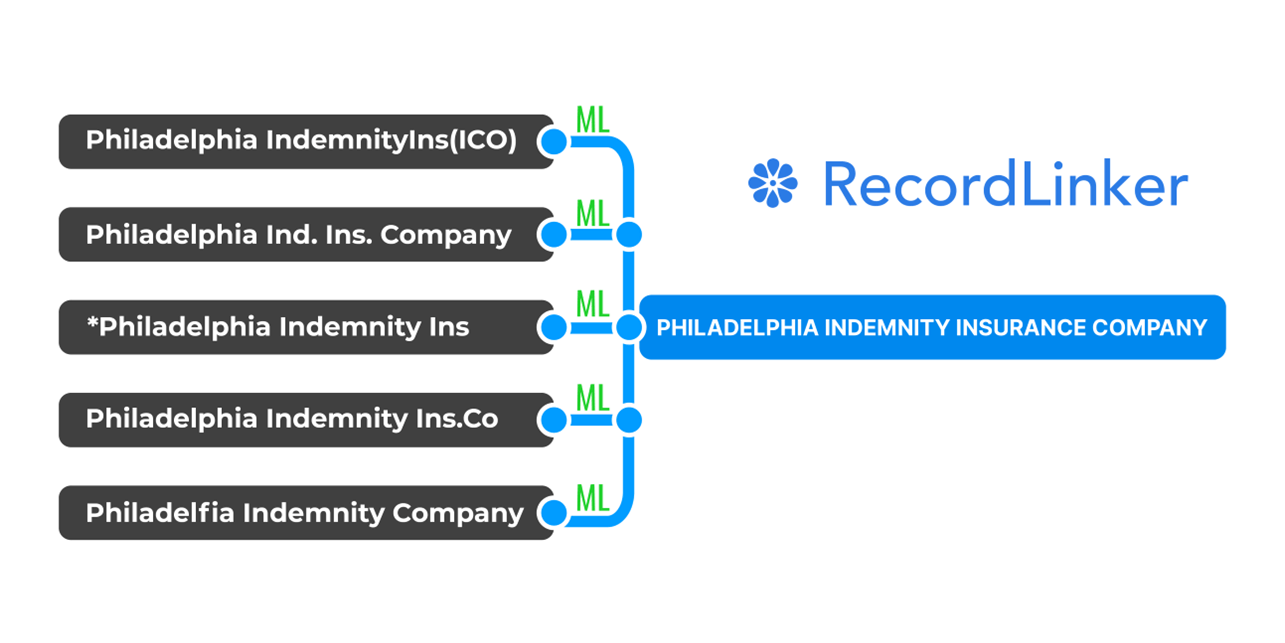The Benefits of Robust Data Matching

Our world is drowning in data. According to IBM, large enterprises are responsible for creating over 2.5 quintillion bytes of data every day — and that number is only growing.
But data is only valuable in the right context. Because corporate data entry is routinely spread across dozens of people, departments, and software platforms, enterprise record systems are often out of sync, and prone to duplicates, errors, and missing data.
Incomplete or inaccurate data has a ripple effect across organizations, leading to decreased productivity, higher churn, and missed opportunities. In fact, Gartner estimates that poor data quality costs organizations $3.1 trillion annually.
That’s where data matching comes in. Data matching is the process of identifying and linking records that represent the same entity across different data sets. When done correctly, data matching can be used to clean up corporate record systems, improve customer relationships, and make better business decisions.
Curious how data matching can help your organization? Below, we’ll cover the four key benefits of robust data matching, and give you some tips & techniques to help implement it today.
Let’s get started!
1. Centralization of Records Can Improve KPI Tracking
One of the biggest benefits of data matching is that it allows you to centralize records from disparate data sets. This gives you a single view of the customer or project, which is essential for understanding its lifetime value, predicting its next move, and tailoring your budget in an effective manner.
Computers are extremely literal — if you have two records for the same entity that differ only by one character (or even by capitalization), they’re often treated as completely separate entities. To your database, _Invision Inc_ is different from _invision Inc._, and propagating these records across an entire CRM can be a nightmare when it comes time to value throughput or report on performance.

2. Better Customer Service & NPS Scores
Incomplete or inaccurate data doesn’t just impact your ability to make sound business decisions — it can also hurt your customer relationships. When customers call in with questions or problems, they expect your team to have all the information they need to resolve the issue quickly and efficiently.
But if your CRM is full of duplicates, errors, and missing data, trying to find the right customer record can be a time-consuming process. It’s not uncommon for several customer entries to be created for the same person, with each one representing a different interaction.
Data matching can help you quickly identify which records represent the same customer, so you can consolidate them into a single view. This gives your team quick access to all the information they need, so they can provide better customer service and resolve issues more efficiently — leading to higher Net Promoter Scores (NPS).
3. Enhanced Data Accuracy for Marketing & Sales
Incomplete or inaccurate data can also have a negative impact on your marketing and sales efforts. If your target list is full of duplicates, your organization is wasting time and money contacting the same people more than once.
Today, sales campaigns are typically omni-channel, meaning they span multiple marketing platforms (e.g., email, phone, direct mail, etc.). Data matching can be used to dedupe your target list across channels and understand just how many people are actually in your pipeline.
4. Enriched Customer Profiles by Fixing Siloed Systems
Incomplete customer profiles are a common issue in corporate environments, where data is often siloed across departments. For example, a sales department might have contact information and purchase history, while the marketing team might have demographic data and web activity.
Data matching can be used to stitch together these disparate data sets, and create a more complete picture of the customer. This enriched customer profile can then be used to inform marketing campaigns, product development decisions, or customer service interactions.
Free Book: Practical Guide to Implementing Entity Resolution
Interested in implementing an in-house record matching solution with your own development team without using any outside vendors or tools?

Enrichment can also be used to identify gaps in customer data, so you can proactively collect the information you need. For example, if you’re trying to reach high-value customers with a targeted marketing campaign, data matching can help you identify which customers are missing key data points (like income or job title), so you can start taking steps to add it to their profile.
Data Matching: Final Thoughts
As a corporation, data can be one of your biggest benefits — or one of your biggest challenges — depending on how well you make use of data matching.
To make the most of your CRM and data management system, it’s critical to have a robust data matching strategy in place. Data matching can help clean up corporate record systems, improve customer relationships, and make better business decisions.
If you’re looking to implement data matching at your organization, we recommend starting with these tips:
- Define your preferred canonical record set first — this will help ensure that you’re identifying and linking records to an understandable entity.
- Use a combination of deterministic and probabilistic matching algorithms — this will give you the most accurate results.
- Invest in quality data cleansing & enrichment tools — this will help ensure that your data is clean, complete, and up-to-date.
RecordLinker uses Machine Learning to normalize records across your data systems.

Don’t have the time to do it all yourself? That’s where RecordLinker comes in. We leverage natural language processing & smart algorithms to automatically match, dedupe, and link multiple data entries to one canonical record, and offer a simple-to-use interface that lets you match data at scale in seconds.
Data matching can be extremely difficult to get right — especially if you’re trying to do it manually. But with the right tools in place, it can be a powerful way to improve your organization’s data quality, and make better use of your corporate core system.
Try RecordLinker today & put your data matching on autopilot!




